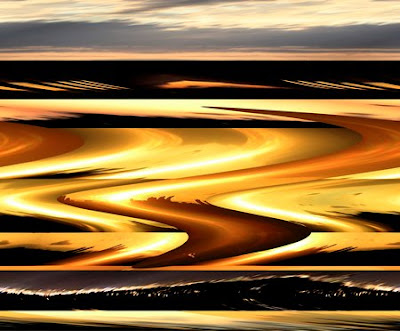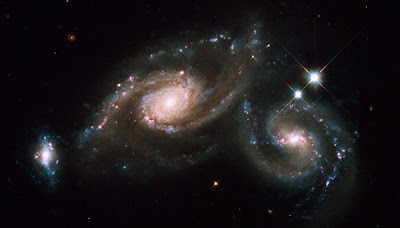
Once in the sun-fierce badlands of the west
in that strange country of volcanic ash and cones,
runneled by rains, cut into purgatorial shapes,
where nothing grows, no seeds spring, no beast moves,
we found a sabertooth, most ancient cat,
far down in all those cellars of dead time.
What was it made the mystery there? We dug
until the full length of the striking saber showed
beautiful as Toledo steel, the fine serrations still
present along the blade, a masterpiece of murderous art conceived
by those same forces that heaved mountains up
from the flat bottoms of Cretaceous seas.
Attentive in a little silent group we squatted there.
This was no ordinary death, though forty million years
lay between us and that most gaping snarl.
Deep-driven to the root of a fractured scapula
hung on the mighty saber undetached; two beasts
had died in mortal combat, for the bone
had never been released; there was no chance
this cat had ever used its fangs again or eaten -
died there, in short, though others of its kind
grew larger, larger, suddenly were gone
while the great darkness went about its task. . .
There were the great teeth snarling in the clay, the bony crests
that had once held the muscles for this deed,
perfect as yesterday.
I looked a little while, admiring how
that marvelous weapon had been so designed
in unknown darkness, where the genes create
as if they planned it so.
I wondered why
such perfect fury had been swept away, while man,
wide-roaming dark assassins of its kind,
had sprung up in the wake
of such perfected instruments as these.
They lived long eras out, while we
in all this newborn world of our own violence show
uncertainties, and hopes unfostered when
the cat's sheer leap wrenched with his killing skill
his very self from life.
On these lost hills that mark the rise of brain,
I weep perversely for the beauty gone.
I weep for man who knows this antique trade
but is not guiltless,
is not born with fangs,
has doubts,
suppresses them as though he knew
nature had other thoughts, inchoate, dim,
but that the grandeur of great cats attracted him -
envy, perhaps, by a weak creature forced to borrow
tools from the earth, growing, in them, most cunning
upon an outworn path.
- Loren Eiseley, The Innocent Assassins, (1973)






















